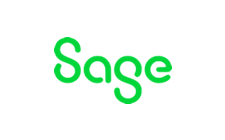Government unpicks the pension triple lock
Pensioners had been in line for a bumper increase in the state pension from April 2022 under the triple lock rules. However, the government has now confirmed this will not go ahead. What’s going on?

The pensions triple lock refers to the set of rules by which the state pension rises each year. Under the lock, the state pension rises by the greater of:
- inflation, as measured by consumer prices index (CPI)
- the average wage increase; or
- 2.5%
This has been the case since 2010, and guarantees that the state pension does not fall in real terms. However, the government has suspended the triple lock mechanism for 2022/23. As employees returned from furlough between May and July this year, they also returned to full pay. This produced an artificial rise in average earnings of approximately 8%. The government feels that this justifies reducing the lock to a double lock, i.e. the state pension will increase by the greater of the CPI inflation percentage, or 2.5% from April 2022. It has pledged that the triple lock mechanism will return for 2023/24. Whilst the move is perhaps understandable in the unique circumstances, some critics say that it is a precursor to abolishing the triple lock altogether.
Related Topics
-
Planning ahead for pension salary sacrifice changes
From 6 April 2029, both employers and employees will be required to pay Class 1 NI on pension contributions in excess of £2,000 made through a salary sacrifice arrangement. What can you do about it?
-
Marginal relief - responding to an HMRC nudge letter
HMRC is running a campaign to clamp down on incorrect claims for corporation tax marginal relief (MR). In what circumstances might you be challenged by HMRC and how should you respond?
-
Can you claim input tax on costs linked to electric cars?
Your business intends to go green and buy new electric cars. Can you claim input tax on the purchase of the vehicles and their subsequent fuel costs? Additionally, what recent change has been announced by HMRC?






 This website uses both its own and third-party cookies to analyze our services and navigation on our website in order to improve its contents (analytical purposes: measure visits and sources of web traffic). The legal basis is the consent of the user, except in the case of basic cookies, which are essential to navigate this website.
This website uses both its own and third-party cookies to analyze our services and navigation on our website in order to improve its contents (analytical purposes: measure visits and sources of web traffic). The legal basis is the consent of the user, except in the case of basic cookies, which are essential to navigate this website.